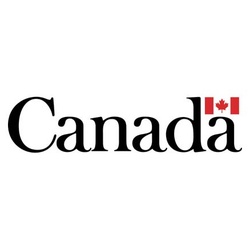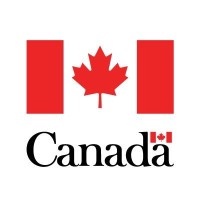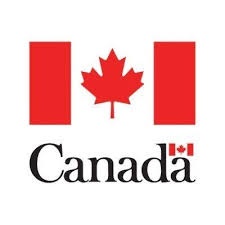
The Low Carbon Economy Fund - Low Carbon Economy Leadership Fund
At a glance
- No Condition
- Closing date : February 8, 2024
- Utilities
- Construction
- Manufacturing
- Professional, scientific and technical services
- Canada
- All legal structures
- All revenue ranges
- All organization sizes
- All groups
Overview
The Low Carbon Economy Leadership Fund provides funding to provinces and territories to help reduce carbon pollution and meet Canada’s climate targets, focusing on areas such as energy efficiency and fuel switching, with a maximum funding envelope of up to $250 million specifically for transitioning from home heating oil. Eligible activities include equipment retrofits, organics diversion, and changes in industrial processes and product use to promote sustainability and emissions reductions.
Activities funded
The grant facilitates efforts to enhance energy efficiency and transition away from certain fuels, along with other actions to lower greenhouse gas emissions. It targets different kinds of sectors and circumstances specific to each province and territory.
- Energy efficiency equipment retrofits.
- Fuel switching initiatives.
- Organic waste diversion efforts.
- Modifications to industrial processes to reduce emissions.
- Changes in industrial product use to improve sustainability.
Eligibility
Eligibility for the Low Carbon Economy Leadership Fund is based on specific criteria related to the role of provinces and territories in the delivery and implementation of funding in their jurisdictions.
- The applicant must be a province or territory in Canada.
- The proposed activities must focus on reducing greenhouse gas emissions, enhancing energy efficiency, or supporting fuel switching.
- The projects should be aligned with the province or territory's climate action priorities and unique environmental circumstances.
- For the home heating oil transition funding, proposals should prioritize support for low-income households using home heating oil and address energy poverty.
Who is eligible?
The Low Carbon Economy Leadership Fund provides funding to provinces and territories in Canada, allowing them to focus on prioritizing their climate action initiatives based on unique regional circumstances. The grant aims to assist in the reduction of carbon emissions and meeting Canada's climate targets for 2030 and beyond.
- Provinces and territories that have submitted proposals to allocate their notional funding envelope towards climate action priorities.
- Provinces and territories with proposals targeting the transition of home heating oil, especially in regions with a high proportion of low-income households.
Eligible expenses
This funding supports climate action initiatives that target reducing greenhouse gas emissions and enhancing sustainability. Eligible activities focus on improvements and transitions in energy efficiency and usage across various sectors and households.
- Equipment retrofits for energy efficiency and fuel switching.
- Organics diversion to reduce emissions from waste.
- Changes in industrial process emissions to lower carbon output.
- Modifications in industrial product use to achieve sustainability.
Eligible geographic areas
The Low Carbon Economy Leadership Fund allocates funding to provinces and territories across Canada. Eligibility is determined by provincial or territorial participation in the program.
- Participating provinces in Canada.
- Participating territories in Canada.
Selection criteria
The evaluation and selection criteria for projects under the Low Carbon Economy Leadership Fund are not explicitly detailed in the provided context and require further information from the relevant authorities or documentation specific to the program.
How to apply
Identify Eligibility and Requirements
- Determine the specific funding envelope you wish to apply for: Notional Allocation or Home Heating Oil Transition Funding.
- Review the eligibility criteria and priority areas for your province or territory.
- Contact your provincial or territorial government to obtain detailed guidelines and requirements specific to your jurisdiction.
Develop Proposal
- Prepare a comprehensive project proposal aligning with the eligible activity categories: energy efficiency, fuel switching, or non-energy related actions.
- Include descriptions of proposed activities, anticipated outcomes, and sustainability impacts.
- Ensure the proposal aligns with the climate action priorities of your province or territory.
Compile Supporting Documents
- Gather required documentation such as financial statements, letters of support, and other necessary endorsements.
- Prepare detailed project budgets and timelines.
- Include metrics for measuring emission reductions and program success.
Submit Application
- Submit your proposal and supporting documents to the designated contact within your provincial or territorial government.
- Ensure your submission complies with any regional guidelines provided by your province or territory.
- Meet any applicable deadlines for proposal submission.
Confirmation and Follow-up
- Receive confirmation of receipt from your provincial or territorial government.
- Follow up as needed to address any questions or provide additional information.
Additional information
The Low Carbon Economy Leadership Fund is designed to help provinces and territories reduce carbon emissions and supports various climate action initiatives. Here are additional details about the grant:
- Notional allocation supports climate action priorities through eligible activities such as energy efficiency and fuel switching.
- Home heating oil transition funding is focusing on regions with the highest proportion of low-income households reliant on home heating oil.
- Funding proposals are submitted by interested provinces and territories.
- For more information or queries, you can contact via email (lcef-fefec@ec.gc.ca) with your name, contact information, and the organization you represent.
- Issues or questions regarding funding recognition or branding should be directed to production@ec.gc.ca.
- More related programs include the Low Carbon Economy Challenge, Indigenous Leadership Fund, and Implementation Readiness Fund.
Contacts
Frequently Asked Questions about the The Low Carbon Economy Fund - Low Carbon Economy Leadership Fund Program
What is the The Low Carbon Economy Fund - Low Carbon Economy Leadership Fund?
What expenses are eligible under The Low Carbon Economy Fund - Low Carbon Economy Leadership Fund?
Who can I contact for more information about the The Low Carbon Economy Fund - Low Carbon Economy Leadership Fund?
Where is the The Low Carbon Economy Fund - Low Carbon Economy Leadership Fund available?
Is the The Low Carbon Economy Fund - Low Carbon Economy Leadership Fund a grant, loan, or tax credit?
Who are the financial supporters of the The Low Carbon Economy Fund - Low Carbon Economy Leadership Fund?
More programs like this

Industrial Research Assistance Program (IRAP) – AI Assist
National Research Council Canada (NRC)
Clean Technology Manufacturing (CTM) Investment Tax Credit (ITC)
Canada Revenue Agency (CRA)
Strategic Innovation Fund (SIF)
Innovation, Science and Economic Development Canada (ISED)
AI-Powered Supply Chains Cluster (Scale AI)
Global Innovation Clusters (GIC)
Green Industrial Facilities and Manufacturing Program (GIFMP) — Industrial Facility Track
Natural Resources Canada (NRCan)
Canada Public Transit Fund
Housing, Infrastructure and Communities Canada (HICC)
Industrial Research Assistance Program (IRAP) — Youth Employment Program (YEP)
National Research Council Canada (NRC)
Mitacs Accelerate
Mitacs
NRC IRAP – Support for clean technology
National Research Council Canada (NRC)